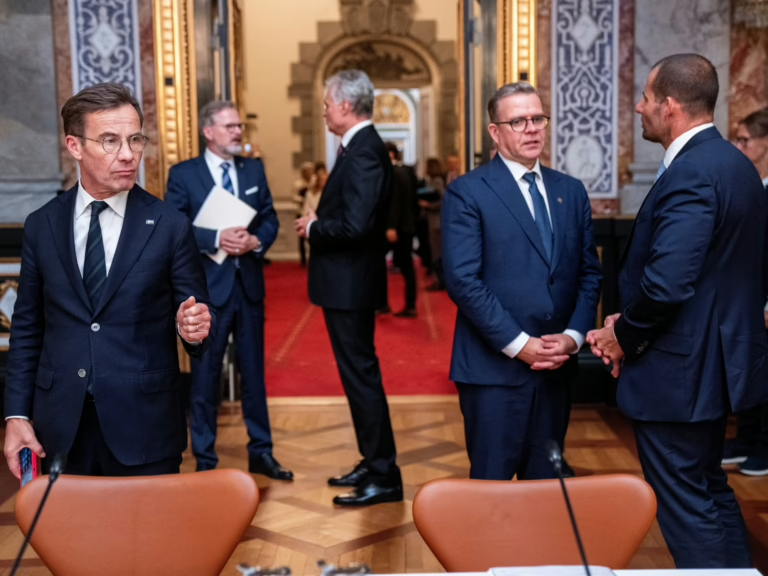Published On 1 Oct 2025
Leading European nations have expressed growing backing for a groundbreaking initiative to utilize frozen Russian assets as security for a substantial loan aimed at rebuilding Ukraine.
Known as the Reparations Loan, this concept was introduced by European Commission President Ursula von der Leyen in mid-September. It proposes leveraging Russian funds currently immobilized in European financial institutions to guarantee a €140 billion ($164.4 billion) loan to Ukraine, with EU member states providing the guarantee. Crucially, Ukraine would only begin repayment once Russia fulfills its obligations for war reparations.
During an EU summit held in Copenhagen, Denmark, support for the plan appeared to strengthen despite some reservations. Finnish Prime Minister Petteri Orpo, Swedish Prime Minister Ulf Kristersson, and Estonian Prime Minister Kristen Michal publicly endorsed the idea of channeling seized Russian resources to aid Ukraine’s recovery.
Meanwhile, Dutch Prime Minister Dick Schoof and French President Emmanuel Macron expressed cautious openness, emphasizing the need to resolve legal and financial uncertainties before moving forward.
EU foreign policy chief Kaja Kallas acknowledged the differing views within the bloc but stressed that efforts to finalize the agreement are progressing rapidly.
“If we overlook these [Russian] assets, the financial burden will inevitably fall on our taxpayers,” Kallas remarked to journalists during the summit.
Kremlin Condemns the Loan as “Theft”
The Russian government has vehemently opposed the Reparations Loan proposal, labeling any attempt to repurpose frozen Russian funds as outright theft.
Kremlin spokesperson Dmitry Peskov criticized the plan, stating, “This amounts to an unlawful confiscation of Russian property. In Russia, we simply call that theft.” He further warned that individuals or entities misusing Russia’s assets or their generated income would face legal consequences and be held accountable.
Peskov also cautioned that such measures could undermine trust in European financial markets. “This backlash will severely impact the countries holding these assets, damaging their investment appeal,” he added.
According to a World Bank report published earlier this year, Ukraine’s reconstruction is projected to require $524 billion over the next ten years-approximately 2.8 times its GDP in 2024.
Currently, frozen Russian assets total around $300 billion globally, with €210 billion ($247 billion) held within Europe. Of this, €185 billion ($217 billion) is deposited in Euroclear, a central securities depository based in Brussels.

















